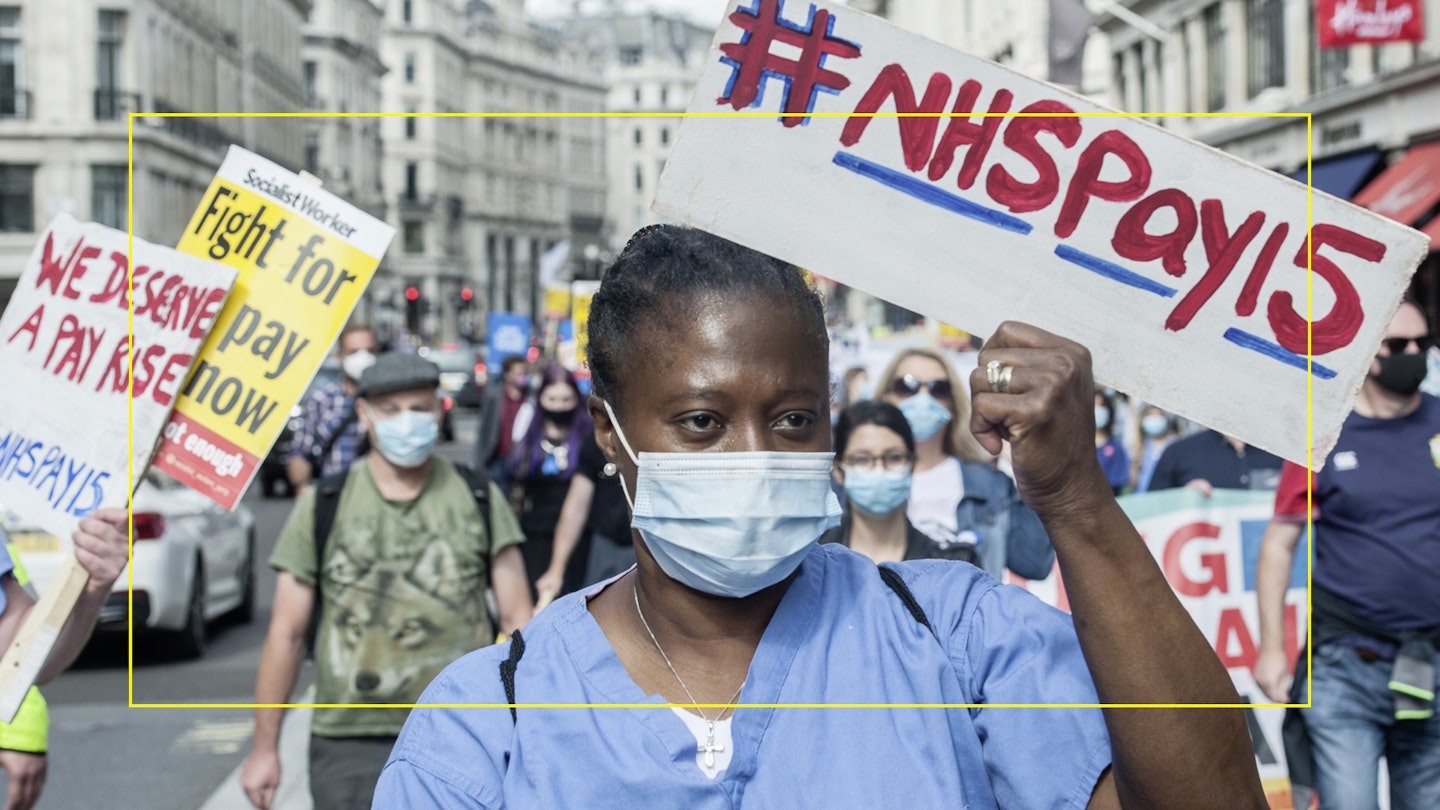Cast your mind back to when Government ministers joined the nation as we banged saucepans on our doorstep in gratitude for those on the frontline. Well, six months on, many are calling for those politicians to put their money where their mouth is – or rather, where their hands were – after they clapped for carers and then excluded many from a pay rise.
Thousands have joined marches recently in protest after nurses, cleaners and other vital NHS staff were excluded from a round of public sector wage increases. ‘I thought I’d heard incorrectly when they said, “Nurses will not be included in this,”’ says Holly Turner, 38, a nurse in the South East. ‘We felt utterly demoralised.’
Holly is a member of activist group NHS Staff Voices and a founding member of NHS Workers Say No. Together with Nurses United, the groups organised the demonstrations. ‘After the gratitude of seeing the Prime Minister and all the MPs clapping and cheering for us every night, and then they announce a public sector pay rise and just completely omitted us from it, we felt gutted, so we decided to do something,’ she says.
Rhian Bethell, 33, a nurse in South Wales, epitomises the sacrifices many frontline workers had to make. She caught Covid-19 in April and had to self-isolate 25 miles away from her two children for weeks. She asked colleagues if they would save her life and her mother checked whether she had a will. Worse still, her four-year-old daughter and son, 11, didn’t understand why they couldn’t see her.
‘I had become the biggest threat to the people I love most in the world,’ she says. ‘My daughter turned four and the only contact I could have with her was FaceTime. All she asked for was a birthday cake and I couldn’t even give her that. My son refused to speak to me because he said “you’re missing my sister’s birthday for a job”. I didn’t tell him I had Covid-19 as the news was full of people dying from it.’
Rhian ended up with bacterial pneumonia and had seven weeks off work in total. ‘It was terrifying. It has been the worst time of my life,’ she says. ‘And no one can tell me the lasting damage either.’
After the Government announcement on pay, morale is low, she explains. ‘We’ve been left out of so many pay raises. So many of my colleagues sadly lost their lives due to this and the Government haven’t even honoured these people. They’ve died on the frontline.’
Richenda Browne, a nurse in London who appeared on Grazia’s NHS covers in March, says, ‘It makes me question my value as a professional,’ since nurses work antisocial hours and public holidays in challenging circumstances, with many working overtime to make ends meet.
‘I love my job and feel privileged to be there for people at their time of need. However, pay should reflect the value the Government and public appeared to show us earlier in the pandemic.’
At the London march, protesters held a two-minute silence for the 640 healthcare workers who died. The Department of Health and Social Care say the NHS staff are currently benefiting from the final year of a three-year pay deal. The pay increase doesn’t apply to junior doctors either, after they agreed a four-year deal last year.
Meanwhile, some NHS workers have been unable to book Covid-19 tests and newly graduated nurses with huge debts are still working on the frontline, while second and third-year nursing students – who have opted to fight the pandemic – will graduate with nearly £60,000 of debt in some cases.
Nurse Hannah Grace Deller ran a London Covid-19 ward during lockdown and describes the pay rise announcement as ‘a sullen day’. ‘We’d all worked so hard. We were heartbroken. We thought maybe we’d get a bonus to acknowledge the past few months, but nothing,’ she says. At the march last weekend, she overheard nurses talking about needing to use food banks.
‘You’d think politicians might reason, “They looked after us, now we should look after them,”’ she adds.
Now we are approaching what is being called a second wave, Rhian is worried, and wonders what she and many others will have to face this winter. ‘The Government needs to acknowledge that we have had a 20% pay cut in real terms with inflation in the last five years. They need to ensure that we get a pay rise,’ she adds.
‘We are on the frontline. We are skilled workers. We all need to be recognised. My colleagues and I have made sacrifices that nobody should ever have to make for a job.’
